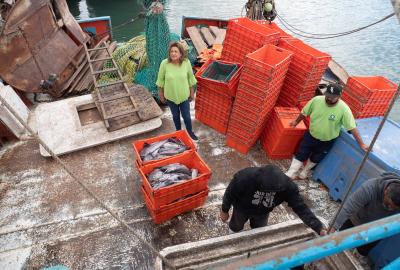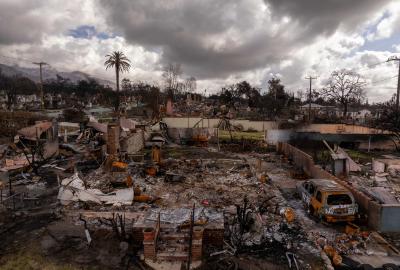Fat Bear Week: Yet another reason to fight climate change and safeguard the future of Alaska's bulkiest brown bears
Whether it's the Olympics or the World Series, humans have always rallied around unparalleled achievers. And when it comes to the corpulent bears of Alaska, we are no different. Welcome to Fat Bear Week.
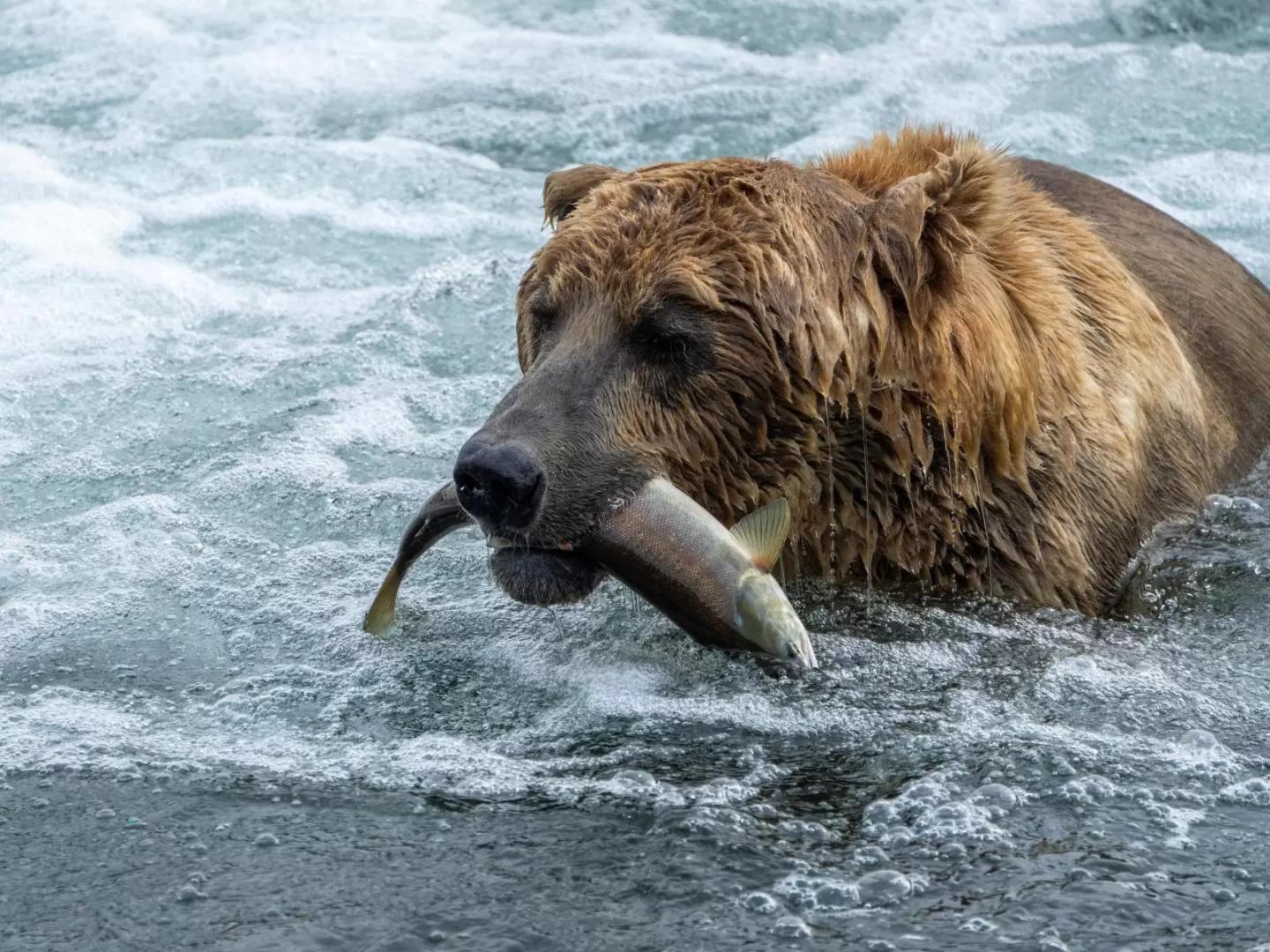
Every year, Alaska's Katmai National Park and Preserve hosts an annual competition where the public vote for their favorite brown bear. Last year, the park received over 800,000 online votes from fat bear enthusiasts. This year it expects even more.
The bears have spent the summer dining handsomely in preparation for hibernation.
The public loves seeing these hefty bears gain their winter weight.
“They experience so many changes … their physical growth and extra 'floof'. Every bear out there exhibits a quality or drive that we simply can’t help but get invested in,” says Amber Kraft, the Interpretation and Education Program Manager at Katmai.
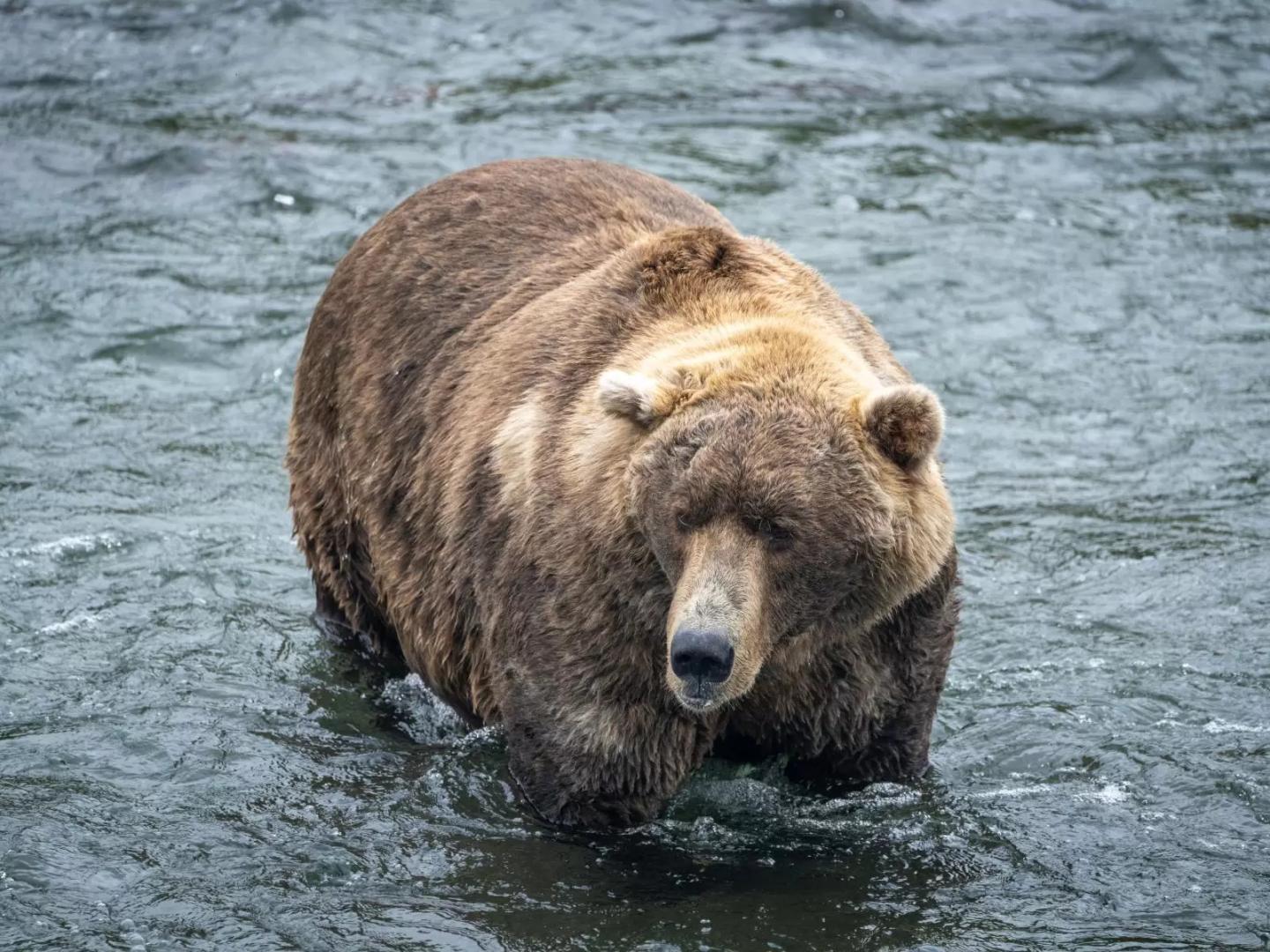
Each bear in the competition has a number, a nickname and a short bio. The bracket is set up March Madness-style, with each round of voting open to the public for 24 hours. Each bear has a before and after pic in a sort of reverse weight loss infomercial.
Last year’s winner, 480 Otis, is an early favorite for the fattest bear of 2022.
But the competition is not just about the bear that gained the most weight.
“We admire them for a variety of reasons, whether it be their resiliency, their personalities or even their particular appearance,” Kraft says.
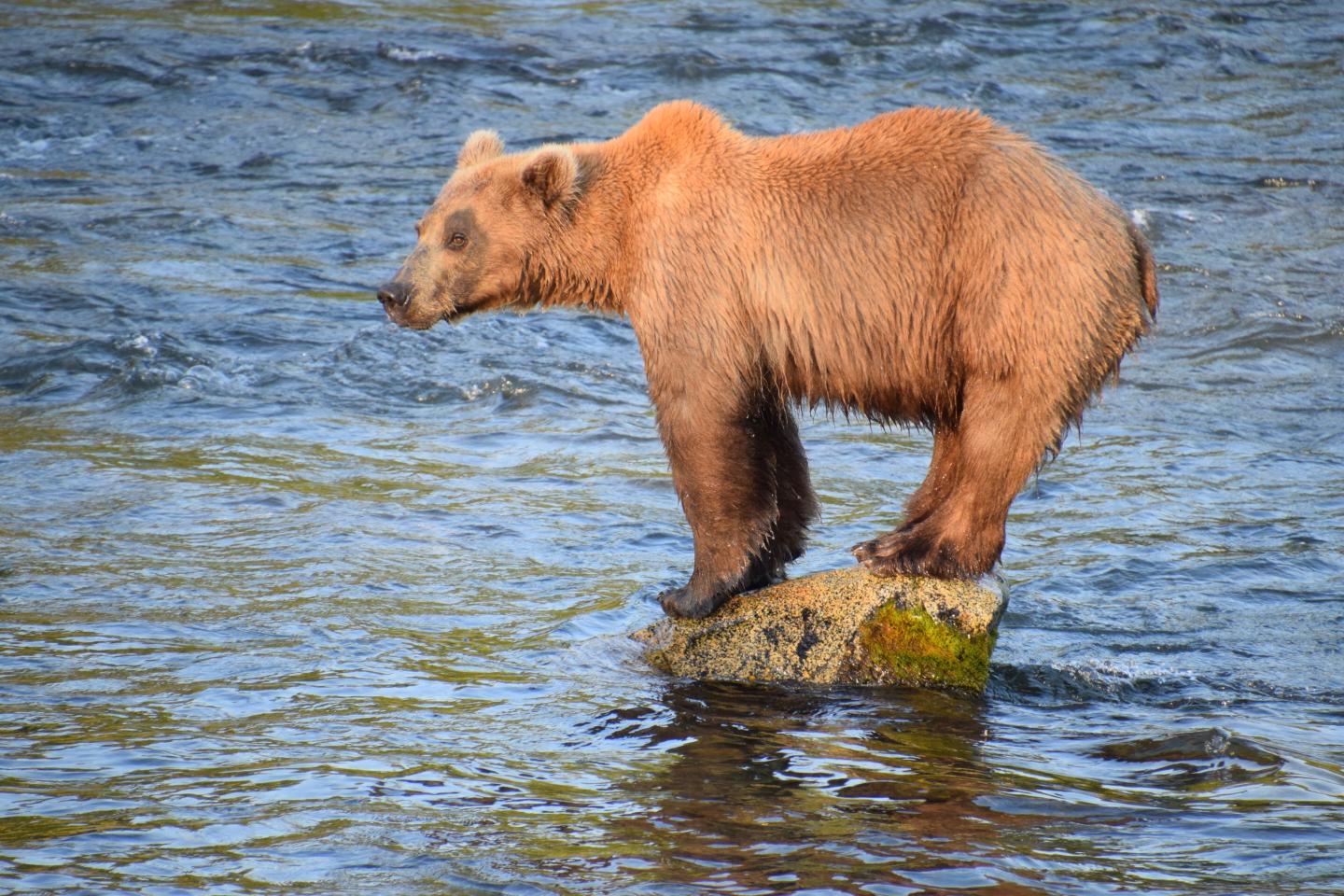
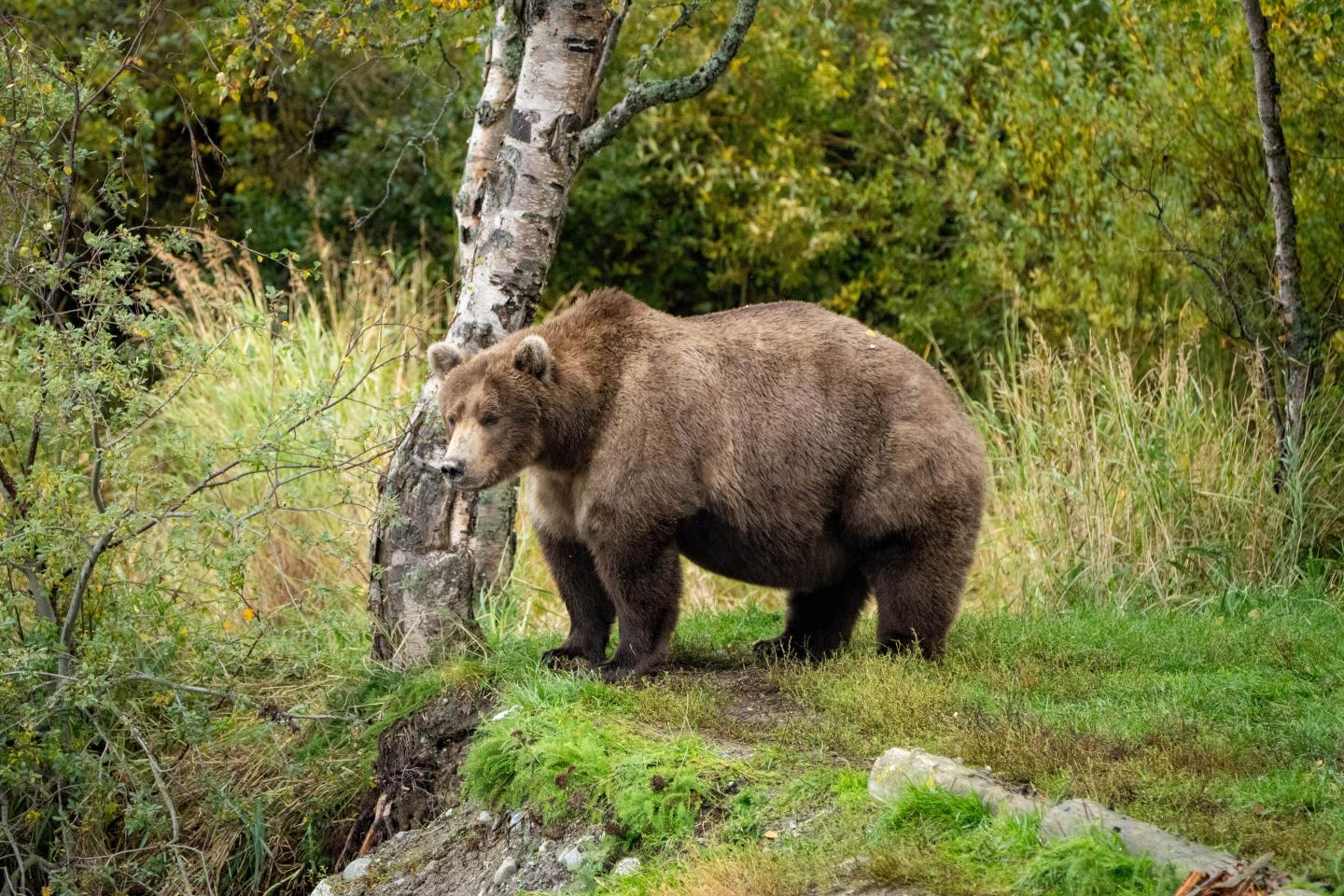
The transition from skinny in the summer to fat in the fall is impressive. (Katmai National Park and Preserve)
The bears, and the salmon they feed on, are a vital part of the ecosystem in Katmai. But climate change is putting them under threat.
As waters warm and salmon becomes less plentiful, the bears of Katmai are eating less fish and more berries, which means the bears do not gain as much weight. And not only are fat bears fun, their excrement is an important nutrient source for the forest which in turn helps naturally combat greenhouse gasses and slow climate change.
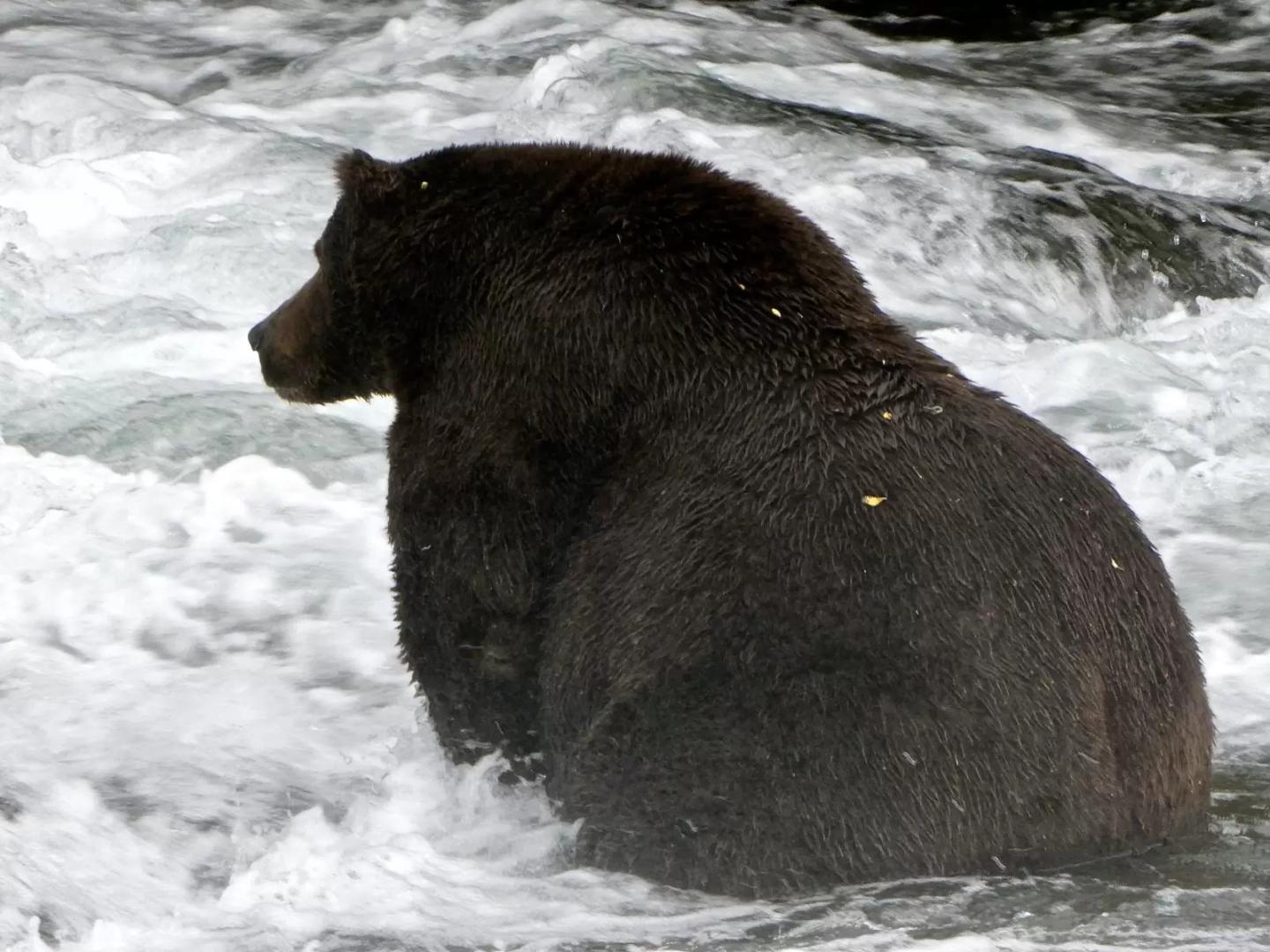
“Alaskan forests are critically important for stabilizing carbon storage in the U.S.,” says Eric Holst, head of natural climate solutions at Environmental Defense Fund.
Less forest means less habitat, fewer berries and more greenhouse gasses in the air.
“It's a domino effect,” Kraft says. “Fat Bear Week is all about celebrating the healthy ecosystem and the ability of bears in this region to be some of the healthiest and largest in the world. After all, a fat bear is a healthy bear.”
One of Kraft's favorite aspects of the week is celebrating the bear cubs.
“They are constantly learning, playing with mom or other bears, and physically they can get quite bulbous,” Kraft says.
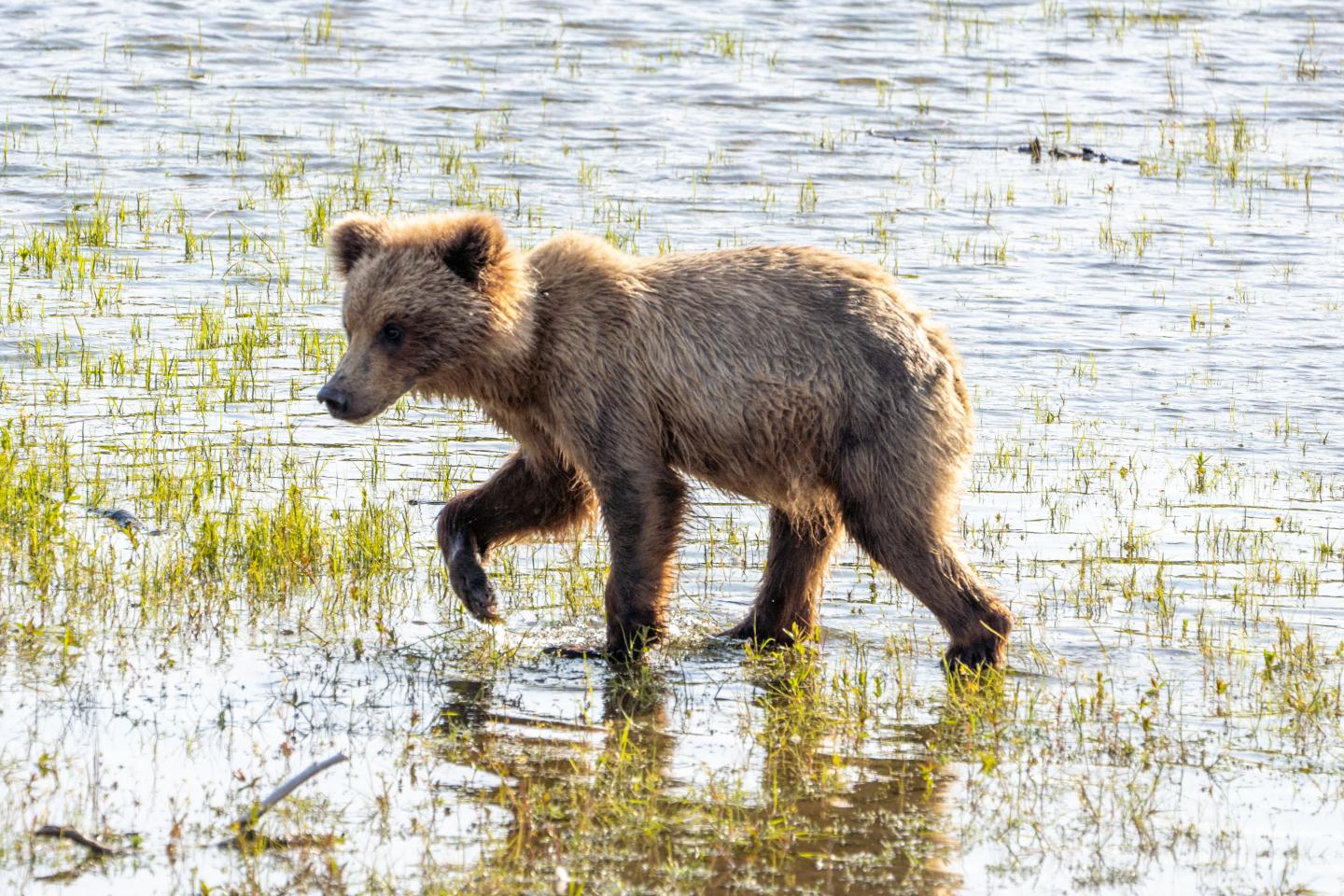
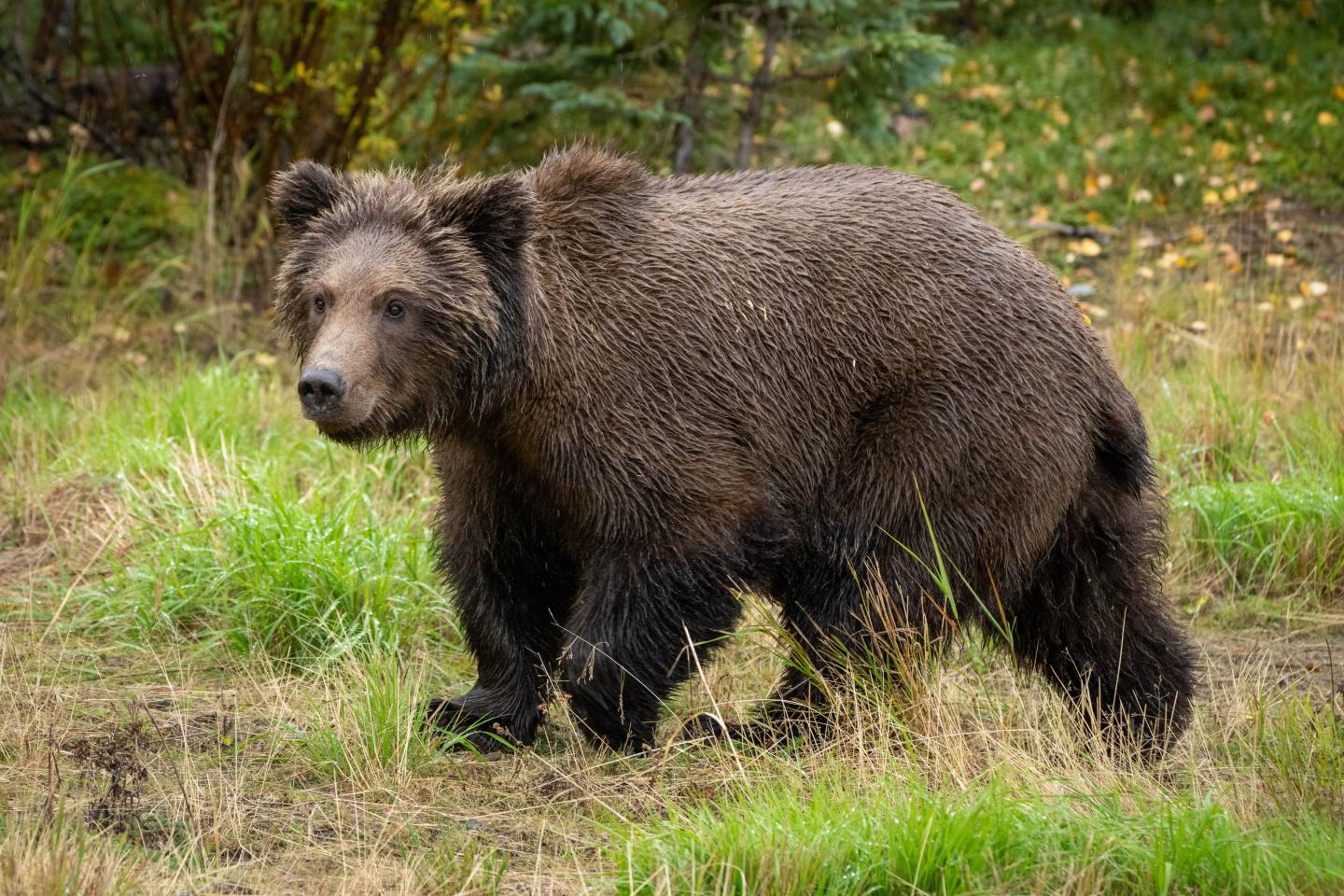
909’s cub transformation captured Fat Bear Junior and got her a place in the full bracket. (Katmai National Park and Preserve)
The chubby cubbies had their own bracket, Fat Bear Junior, where 909’s cub won with such impressive weight gain that she was added to the overall bracket to compete against the adult bears.
Fat Bear Week launched on Oct. 3. Voting began on Oct. 5, and the fat bear champion will be crowned on Oct. 11. Katmai will also host a brown bear fundraiser on Oct. 15 on their Brooks River live channel.
Update:
Bear 747 was crowned the 2022 champion. Fat Bear Week 2023 will begin anew in early October.
